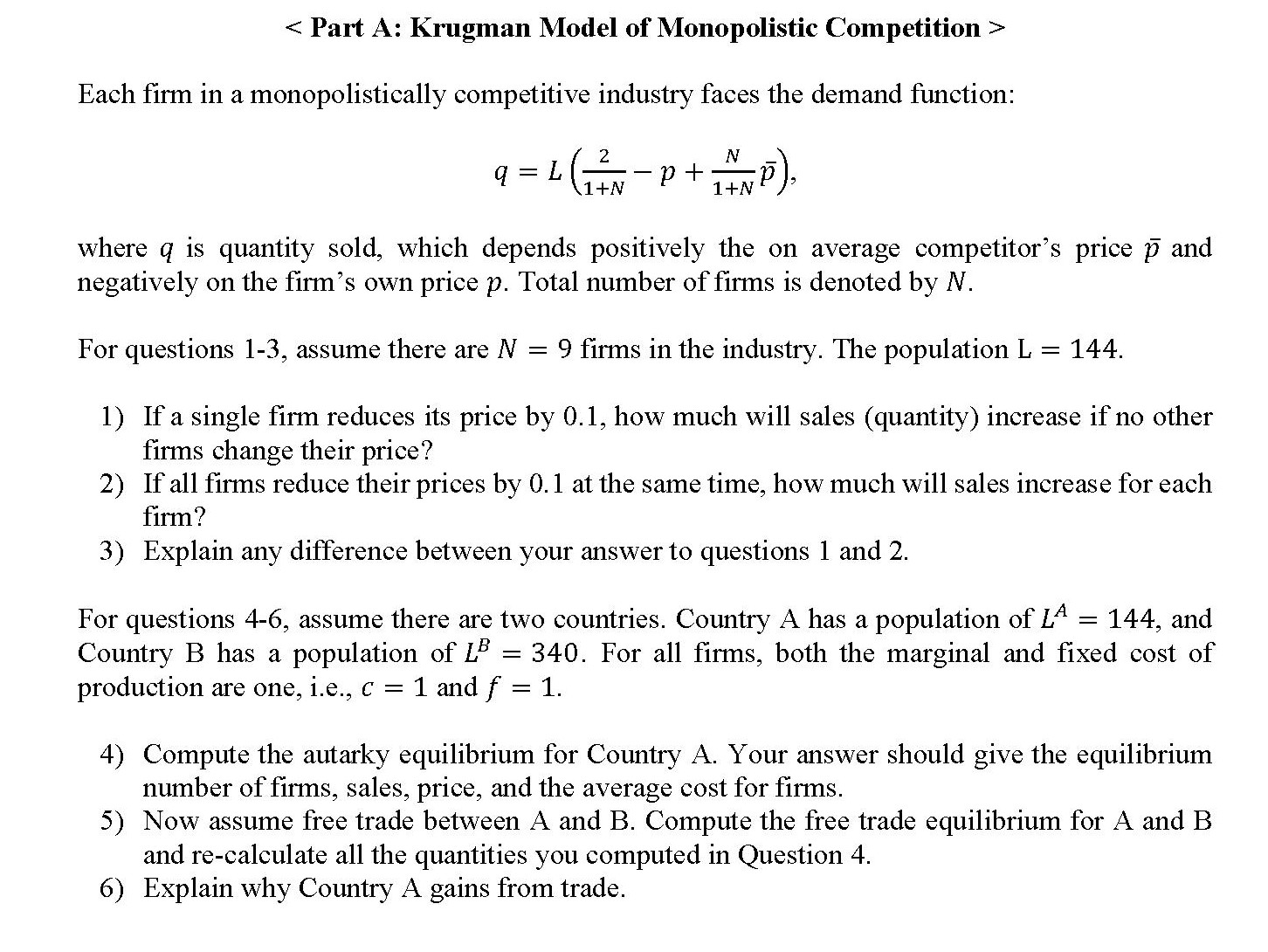Answered step by step
Verified Expert Solution
Question
1 Approved Answer
< Part A: Krugman Model of Monopolistic Competition > Each firm in a monopolistically competitive industry faces the demand function: 2 LG p+ +

< Part A: Krugman Model of Monopolistic Competition > Each firm in a monopolistically competitive industry faces the demand function: 2 LG p+ + TANP), 1+N 1+N q - where q is quantity sold, which depends positively the on average competitor's price p and negatively on the firm's own price p. Total number of firms is denoted by N. For questions 1-3, assume there are N = 9 firms in the industry. The population L = 144. 1) If a single firm reduces its price by 0.1, how much will sales (quantity) increase if no other firms change their price? 2) If all firms reduce their prices by 0.1 at the same time, how much will sales increase for each firm? 3) Explain any difference between your answer to questions 1 and 2. For questions 4-6, assume there are two countries. Country A has a population of L = 144, and Country B has a population of L = 340. For all firms, both the marginal and fixed cost of production are one, i.e., c = 1 and f = 1. 4) Compute the autarky equilibrium for Country A. Your answer should give the equilibrium number of firms, sales, price, and the average cost for firms. 5) Now assume free trade between A and B. Compute the free trade equilibrium for A and B and re-calculate all the quantities you computed in Question 4. 6) Explain why Country A gains from trade.
Step by Step Solution
There are 3 Steps involved in it
Step: 1
Here are the solutions 1 Demand function q L2 p barp1N Where L14...
Get Instant Access to Expert-Tailored Solutions
See step-by-step solutions with expert insights and AI powered tools for academic success
Step: 2

Step: 3

Ace Your Homework with AI
Get the answers you need in no time with our AI-driven, step-by-step assistance
Get Started


